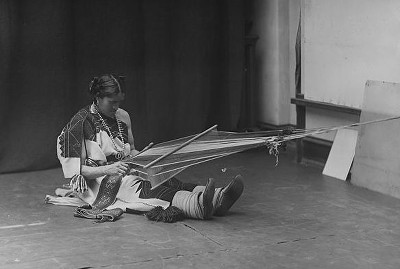
Photo by John K. Hillers, c. 1781-1896, for the Smithsonian Institution, Bureau of American Ethnology (National Archives and Records Administration ID: 523558).
LGBTQ history is an umbrella term that captures the stories of strength and struggle of diverse individuals, cultures, and communities that have been considered nonnormative. It is the story of movements for justice; of moments of triumph and tragedy that people we now understand as LGBTQ have faced—and often continue to face—in our daily lives and demands for the right to live, love, and thrive. In the modern era, sexual and gender identity and expression have been central to Americans’ understandings of themselves, even as they have been shaped by— and shaped—broader structures and attitudes toward race, ethnicity, class, gender, ability, and nation. Major institutions, governments, courts, churches, and the medical profession, have served as arbiters, constructing normative and deviant sexualities and providing criteria for defining the range within each. Therefore, the study of LGBTQ history is the study of cultural, social, and legal politics in the United States and who and what is considered part of the “national” narrative. The National Park Service LGBTQ Heritage Initiative is a testament to how America’s perception of who is seen as part of the nation has shifted over the years. Read more » [PDF 2.4 MB]
The views and conclusions contained in the essays are those of the authors and should not be interpreted as representing the opinions or policies of the U.S. Government. Mention of trade names or commercial products does not constitute their endorsement by the U.S. Government.
Part of a series of articles titled LGBTQ America: A Theme Study of Lesbian, Gay, Bisexual, Transgender, and Queer History.
Last updated: October 11, 2016
